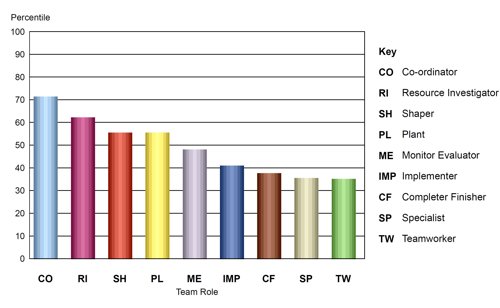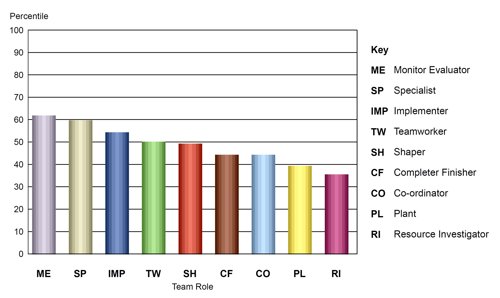Understanding your students' Belbin Team Role preferences can give your University or Business School valuable insights.
By introducing your MBA and Executive Education students to both the Belbin theory and Reports, you are giving them the tools they need to start putting together high-performing teams.
They can use this knowledge during their course - whilst working on various student assignments – and within their own organisations.
However, the use of Belbin doesn't stop there. YOU can use this knowledge too! Understanding your students' Belbin Team Role preferences can give your University and Business School valuable insights.
Once your students have completed the Belbin Self-Perception Inventory to receive their Individual Belbin Report, you can start to use this data to understand the collective behavioural profile of your students.
Why does this matter?
By understanding the collective behavioural profile of your students you can use the data to:
- inform your marketing campaigns
- tailor your courses to maximise outcomes
- understand learning styles to minimise drop-out rates...
Here are a couple of examples:
These are the Team Role Averages from an European Business School MBA course. What conclusions can be made? What questions does this raise?

The Co-ordinator Team Role has the highest average. Is this because Co-ordinators require a collaborative environment in which they are given responsibility and can exercise some autonomy and control, or because their calm and confident approach makes them a good candidate at interview?
Those with high Teamworker or Specialist qualities aren’t highly represented. Does the course, and corresponding marketing material, value the skills they bring? Neither are high profile roles, but should that preclude them from the course?
What does this tell you? Is this the same for MBA courses throughout the world?
Looking at these Team Role Averages from a leading Business School in the UK, maybe not.

Does this MBA course school attract the more strategic thinkers? After all, Monitor Evaluators are serious-minded, prudent individuals best suited to analysing problems and evaluating ideas and suggestions to determine their viability.
Is this a reflection on the values and culture of this particular business school/course?
The lowest averages are for Plant and Resource Investigator. This is interesting as when combined, these are the behaviours you associate with creativity, ideas, opportunistic thinking and entrepreneurship.
What conclusions would you draw from this?
If you had the other metrics– pass rates, drop out rates, feedback scores – you would have a wealth of data that could inform your courses of the future.
Interested? Contact us for a chat – either on the phone, or face to face.
Fill in the form below, and we will be in touch!
Related reading:
Belbin's work with Higher Education: Belbin has been used in a university setting for over 30 years, and enables lecturers to encourage team working and self-reflection; aid work placement; give careers advice and guidance and form study groups and teams.
Belbin's work with the University of Edinburgh:The University of Edinburgh uses Belbin to increase student self awareness, support academic performance and increase students’ global employability.
Belbin's work with Leeds University Business School: Belbin is used in the Marketing Department within the Business School across four Postgraduate Marketing qualifications. Approximately 800 Postgraduate students will make use of Belbin each year.